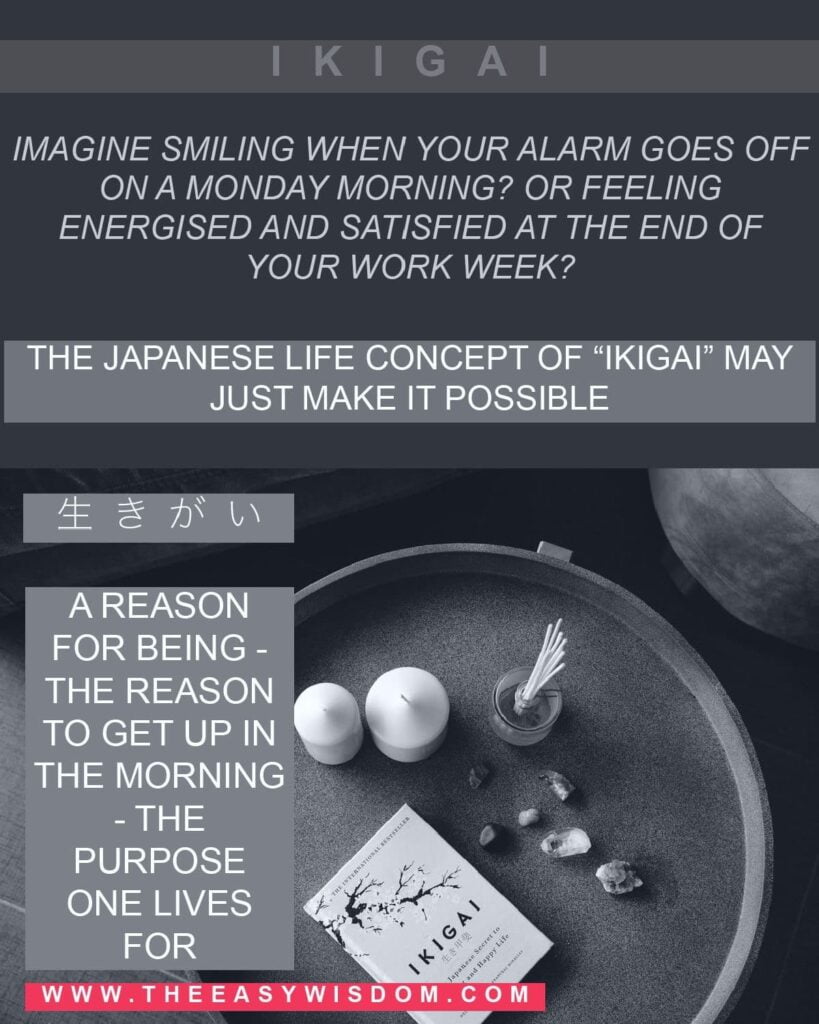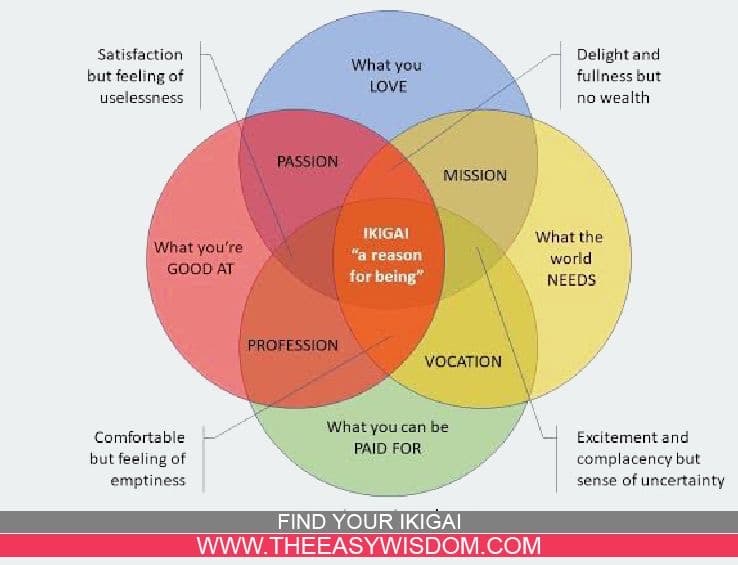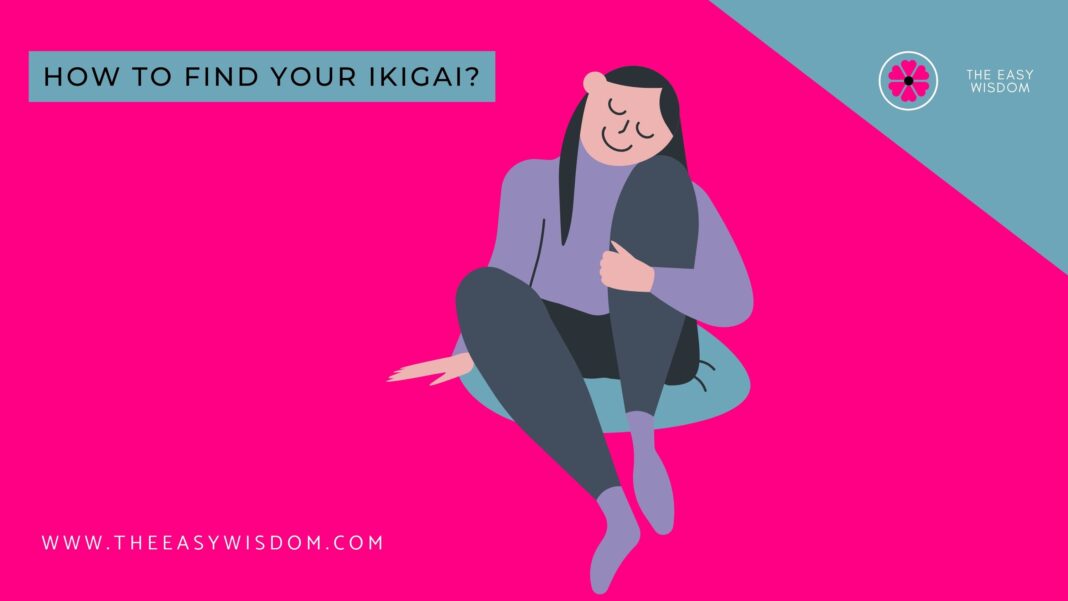The World Mental Health day is almost here-hitting us on 10th October. Uncharacteristically, people from all walks of life, seize this opportunity to openly talk about mental health issues and ways to improve their own wellbeing. While mental health issues can Inflict anyone, it is an important topic within the workplace and affects millions of working professionals, regardless of their ostentatious phlegmatic demeanour. In the light of apparently prevalent mental health issues, perpetuated by the epidemic, especially, at the workplace, being productive and effective has almost become a utopian thought. While such an outcome may be inadvertent, there are various measures employees can resort to, to reclaim happiness at the workplace and in general life. One of the best ways to strike a perfect work and life balance is by embracing the Japanese concept of Ikigai, which can be a means of catharsis in times of distress, dissonance, and disequilibrium. So, how to find your ikigai? And how to find our ikigai at work?
Notably, so many people around the world wake up in the morning only to realize an unexplained resentment about their jobs and an excruciating feeling of emptiness. They often find themselves dragging to the office without any enthusiasm. It is obvious that under such circumstances, people may ask existential questions, undergo an introspection mode and may want to unlock their inner motivations in an attempt to understand who they are and what is missing in their lives. Studies show that only a small part of the workforce finds its job meaningful, satisfying and engaging, indicating that the majority of us lie on the other side of the satisfaction spectrum. The obvious question is – how long can a person continue like this? What is it that draws people away from being happy, content and motivated? Such a ubiquitous sentiment is quite obvious but can be effectively addressed by the concept of “Ikigai” which is a key to rediscovering happiness at the workplace and in life.

What is Ikigai?
“Essentially, Ikigai is the reason why you get up in the morning”
Ikigai is a term coined in Japan, and is a Japanese concept that means “a reason for being”. This word refers to having a direction or purpose in life, that makes your life worthwhile by imparting a sense of meaning in life. Ikigai is basically your purpose in life. It is something that motivates you to rise up in the morning with a sense of fulfilment and a purpose. In simple words ‘Ikigai’ brings meaning to your life. So before you consider how to find your ikigai, understand the meaning of ikigai in principle.
Japanese people ardently follow this philosophy of Ikigai to find satisfaction and positivity in their lives. And this explains Japan’s secret to a longer and happier life and a congruent work and life balance, which is gaining the attention of millions from all around the globe. Because the ikigai way of life is particularly prominent in Okinawa, Japan – often referred to as the “land of immortals”, its population has one the highest life expectancy and the highest rate of centenarians in the world. Okinawans have less desire to retire from work, as they prefer doing their jobs lovingly as long as they remain healthy.
How to find your Ikigai?
A lot of people often advise us on life issues stating that if you do what you love, you will lead a happy life. While this may sound like a piece of great advice, it is generic in nature and does not give us exact actionable points to work upon. This is why we need to find our Ikigai to recapture happiness at the workplace and in general life and create a harmonious work and life balance. So how to find your ikigai. Here is how to find your ikigai:
To find your ikigai, answer the four basic questions and enlighten yourself to find your eternal happiness. These four questions that help you find your ikigai are also called the four Ps of Ikigai.
- Do what you love to do the most:
- What is it that you loved doing the most as a child?
- How do you love to spend your spare time? What are the things you love to do?
- Do what are you really good at:
- What do you think are your strengths?
- What skills you bring to the table that people recognize your for?
- When people ask for your help, what is it they ask you for?
- Do something that can impact the society in a positive way:
- What is it that resonates with your higher purpose in life and that inspires you?
- What is that you do not like and that frustrates you?
- How can you solve the world needs?
- Do something that you can get paid for:
- What are the skills, products or services that you have and that you can use to make people pay for?
- What is the job you can do that will pay you?
When you answer these questions you can find your ikigai!
These four questions correspond to the four Ps of ikigai:
- Passion: What do you love to do that makes you happy?
- Profession: What are you really good at?
- Problem-Solving or Mission: What can you do to make an impact in the world or what the world needs?
- Profit or Vocation: What you can get paid for?

Ikigai is an intersection point where your passion, profession, mission and vocation merge. This is an ideal point at which you will be living a purposeful life, that will impart happiness at the workplace and satisfaction in life. Answering the above four questions will help you determine your Ikigai and give you the strength, and motivation to wake up every day with an evangelical zeal.
“Make a list of your values, things you like and things you are good at. The cross section of the three lists is your Ikigai”
But what if you are not able to exactly figure out your Ikigai? It is not unlikely that you will find that your passion, profession, mission and vision are not integrating at all times. Maybe, you have found something you love doing, and possess the necessary skills to pursue the same and it is also something the world needs, but you are not able to find a way for getting paid for the same. You can’t just give up your job and start doing something which will not even pay for your bread and butter, right? You do not have to just get up one morning, quit your job and shake your life upside down. Rather, finding your Ikigai starts with finding that one thing in your job that you love doing, and exploring it further while thinking about how it can positively affect people’s lives. This requires challenging yourselves from time to time till the time you find something meaningful and eases your mind. This will hopefully, help you stop despising your workplace.
And what if you are not able to find something likeable in your job? In such a case you may repeat the same above process outside your job till the time you are able to figure out your Ikigai while keeping the job of finding your Ikigai as your side hustle. In this way, you will ultimately find your happiness at the workplace, wake up happy, filled with enthusiasm, and lead a happy and content life.
How to find your Ikigai to find happiness at the workplace?
On the face of it, Ikigai may seem intimidating. But on a closer examination, it only poses a few very basic questions pertaining to our broad purpose in life, which becomes a precursor to finding happiness at the workplace in particular and in life in general. Here are a few actionable steps one can follow to find their Ikigai and recapture happiness at the workplace:
1. Understand what you are good at
To understand what you are really good at, it is important to reflect on various facets of your life like important contributions you have made so far during your studies, work, or in your personal life. Dive in deep to know what it is that your family, friends seek from you the most. List previous feedback, personality assessments or your achievements while assessing your skills at work and what skills you bring to your office.
Reflect on your peak experience back in time when you felt really proud, happy and alive. Make a note of it and think of ways to bring those feelings back to your current work and life and figure out how these feelings will be manifested in the current scenario. Before helping others navigate their path, it is important to be sure of your own drivers.
2. Be pragmatic
When you reflect back to find your self-purpose, do not look at the realms outside your current life, work and capability, rather, take a realistic perspective and align your Ikigai with existing life and unlock newer perspectives, opportunities or avenues.
Consult those who are really close to you, as they are the ones who see us through. It is always to confide in your family and close friends when questioning your life purpose, passion and work alignment. Seeking feedback, before making changes in your life goes the right way.
3. Do not lose your perspective
In this ever-changing world characterized by growing uncertainty, it is imperative to stay balanced, hold on to your work, stay functional with respect to your life and seek what is best for yourself, your work and your family. The idea is to be practical, stay present while looking ahead and take gradual steps to change your life in an attempt to find your meaning in life.
In a quest of finding our Ikigai or our self-purpose in life, it is important to understand that the 4 Ps of Ikigai are also dynamic and continuously evolving. While it will feel very rewarding if we discover our inner fulfilment, it is also essential to living and enjoying every moment as it comes. Practising gratitude, and being thankful for others shall be the first step that we should be taking towards achieving our “reason for being”.
How Ikigai resonates with our life-purpose?
The concept of Ikigai enables people to address attainment of lost happiness at the workplace by helping them to discover their own motivation, capabilities, money earning potential and impact on society leading them to find their inner fulfilment. Ikigai when applied to professional lives helps people find, hone and relish the profession of their choice, make up for their lost happiness at the workplace and help them reach the self-actualization stage of Maslow’s need hierarchy theory.
For a typical Japanese worker in big cities, the days start with jam-packed metro trains in which they are stuffed like tightly packed grains of rice in sushi. The culture of presenteeism, often denoted by extra-long hours at work, and hierarchical rules add to the stress. It is not uncommon to see the last trains at midnight stuffed with cattle in suits. Yet they are motivated, happy & have a great work and life balance! How do they manage? The secret lies in the idea of ‘happiness in living’ – Ikigai!
1. Ikigai has nothing to do with one’s income
In Japan, unlike the Western world, Ikigai has nothing to do with one’s income. In a survey by Central Research Services in 2010, just 31% of workers considered work as their Ikigai- which means they associate work as their value in life and it is just not limited to that. Japanese workforce by and large are not motivated by just income, but they work to survive and to meet some bigger goals in life by integrating their lives with the philosophy of ikigai.
The key to achieving happiness at the workplace is to not associate your life’s value with that of your work only. Life has a bigger meaning and that can often be found outside the realm of your work life. Income is relative and it’s your life goals that count. Focus on your work, and on your life’s bigger aspirations rather than placing importance on the income only. Finding a bigger purpose and meaning in life will make you more productive, happy and content. This will lead to better productivity and efficiency at work, which in turn may lay necessary grounds for your success at your workplace percolating down to your personal lives.
2. Find joy in small things
Most Japanese people believe that the summation of small pleasures in daily life results in a more meaningful and fulfilling life as a whole. Therefore, the Japanese enjoy their everyday lives as it comes and finds pleasure in even the smallest of things. This happiness reflects in their daily work lives and translates into high motivation, productivity & happiness at the workplace.
Fresh air at the crack of the dawn, morning coffee & happy social life should be part of your things that should motivate you to get up in the morning and enjoy your life both at work and outside work. When we were kids in school, we used to get up early in the morning and enjoyed candies, ice-creams and loved the rain. Finding pleasure in smaller things will make us more grateful in life and help us attain a perfect equilibrium between work and social life. This will certainly lead to increased motivation, involvement at work and happy social life.
3. Think smaller and make an impact
“Ikigai is about feeling your work makes a difference in people’s lives”
Japanese take ikigai with a feeling that their work makes a difference in people’s lives. As per one study, ‘doing work that affects the lives of others and to ‘see the people affected by their work’ is a motivating factor for employees. Start smaller, by believing in the fact that every small step affects people’s life. This approach is the key to rediscovering happiness at the workplace.
This applies pretty well to all of us. Instead of trying to impress the management with your super ability to tackle the company-wide problem, reflect back upon your immediate profile and how even the smallest step of your mundane job may impact the stakeholders in a big way. The idea is to feel your work and how it makes a difference in people’s lives. This will lead to increased engagement at the workplace, as you will be able to grade yourself and your job in high respect.




